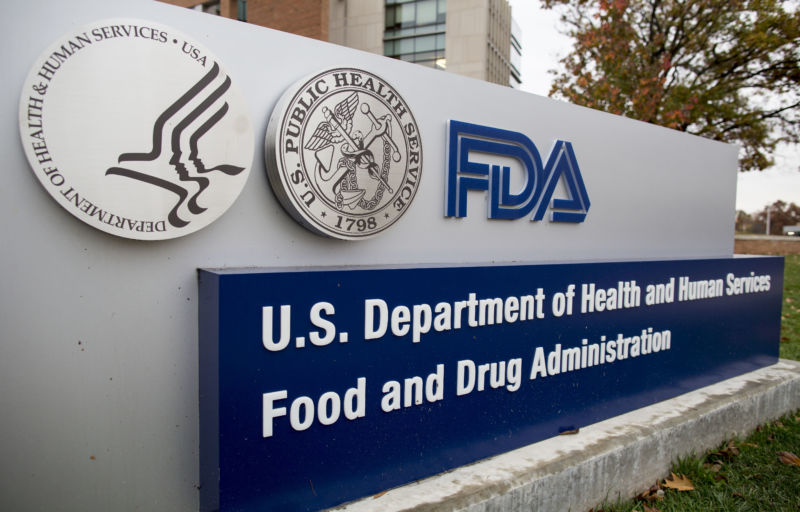
A leading advocacy and watchdog group is calling for the ouster of three top officials at the Food and Drug Administration—including its acting commissioner—after the regulator issued a highly contentious approval last week of the unproven and now highly priced Alzheimer’s drug Aduhelm (generic name: aducanumab).
The call for fresh FDA leadership comes atop a chorus of harsh criticism over the decision, which outside researchers and industry experts have called “disgraceful” and “dangerous,” among other things.
Since Aduhelm’s approval was announced June 7, three expert advisers to the FDA have resigned in protest, with one calling the decision “probably the worst drug-approval decision in recent US history.” The three experts were part of an 11-member advisory committee that reviewed the clinical data for the Alzheimer’s drug last November and voted nearly unanimously against approval (10 voted against, 1 voted “uncertain”).
On Wednesday, advocacy group Public Citizen only increased the din of criticism, calling the FDA’s approval “reckless.” The FDA’s decision “showed a stunning disregard for science, eviscerated the agency’s standards for approving new drugs, and ranks as one of the most irresponsible and egregious decisions in the history of the agency,” Michael Carome, director of Public Citizen’s Health Research Group, said in a statement. “The sheer recklessness of the FDA’s approval of aducanumab cannot be overstated. This decision is a disastrous blow to the agency’s credibility, public health and the financial sustainability of the Medicare program.” The latter point refers to the fact that Aduhelm’s developer, Biogen, set the drug’s list price at $56,000 for a year’s supply.
In a letter addressed to Xavier Becerra, secretary of the Department of Health and Human Services, Dr. Carome and Public Citizen called for the immediate resignation or removal of three top FDA officials, whom they described as “most responsible” for the approval. They are: acting FDA Commissioner Janet Woodcock, Center for Drug Evaluation and Research (CDER) Director Patrizia Cavazzoni, and CDER Office of Neuroscience (ON) Director Billy Dunn.
“New leadership of the FDA and CDER is a prerequisite for restoring the agency’s credibility and reversing the slide in the agency’s standards for ensuring the safety and effectiveness of new drugs,” Carome said in the letter. “You should direct the next Acting FDA Commissioner to consider whether the agency’s approval of Biogen’s BLA for aducanumab should be withdrawn.”
Flaws and mistakes
Though the fiery letter noted that there was a “litany of flaws” behind the FDA’s decision, it laid out four critical problems with the approval. Those four problems echo the criticisms brought up by other experts and the FDA’s advisory committee before and after the approval.
The letter listed:
- “The unprecedented, inappropriately close collaboration” between the FDA and Aduhelm’s maker, Biogen, which “dangerously compromised the independence and objectivity of the agency’s review.”
- The fact that the approval was unexpectedly based on an “unvalidated” surrogate endpoint—reduction of amyloid-beta plaques in the brain—rather than efficacy. The FDA had stated very clearly to its advisers in November that it would base the decision on efficacy and not use this surrogate endpoint for approval. But, upon approval, the regulator said that it did use the surrogate and claimed that the reduction of amyloid-beta is expected to lead to clinical benefit. Public Citizen and many outside experts note that evidence from the Aduhelm trials and many other trials have found no correlation between reduction in amyloid-beta plaques and improvement in cognitive function. (FDA’s own statisticians, the expert advisers, and many outside experts all agreed that Biogen’s trial data did not clearly indicate that the drug was effective at improving cognitive function. The FDA acknowledged the “uncertainty” about efficacy and based the approval on the surrogate instead.)
- The apparent disregard of the FDA advisers who voted against approval and the FDA’s decision not to seek their input on the use of the surrogate endpoint.
- And, lastly, approving Aduhelm for all types of Alzheimer’s disease patients despite the fact that Biogen’s trials only included patients with mild disease.
While many critics of the FDA’s decision have expressed concern for the precedent the approval sets for future drugs, Public Citizen and others also worry about the impacts on patients and their families.
“Approving aducanumab despite the lack of evidence of effectiveness has raised false hope for millions of Alzheimer’s disease patients and their families… and will impede for years the development of other experimental treatments for this devastating disease,” Carome wrote.
The FDA did not immediately respond to Ars’ request for comment.
https://arstechnica.com/?p=1774338

